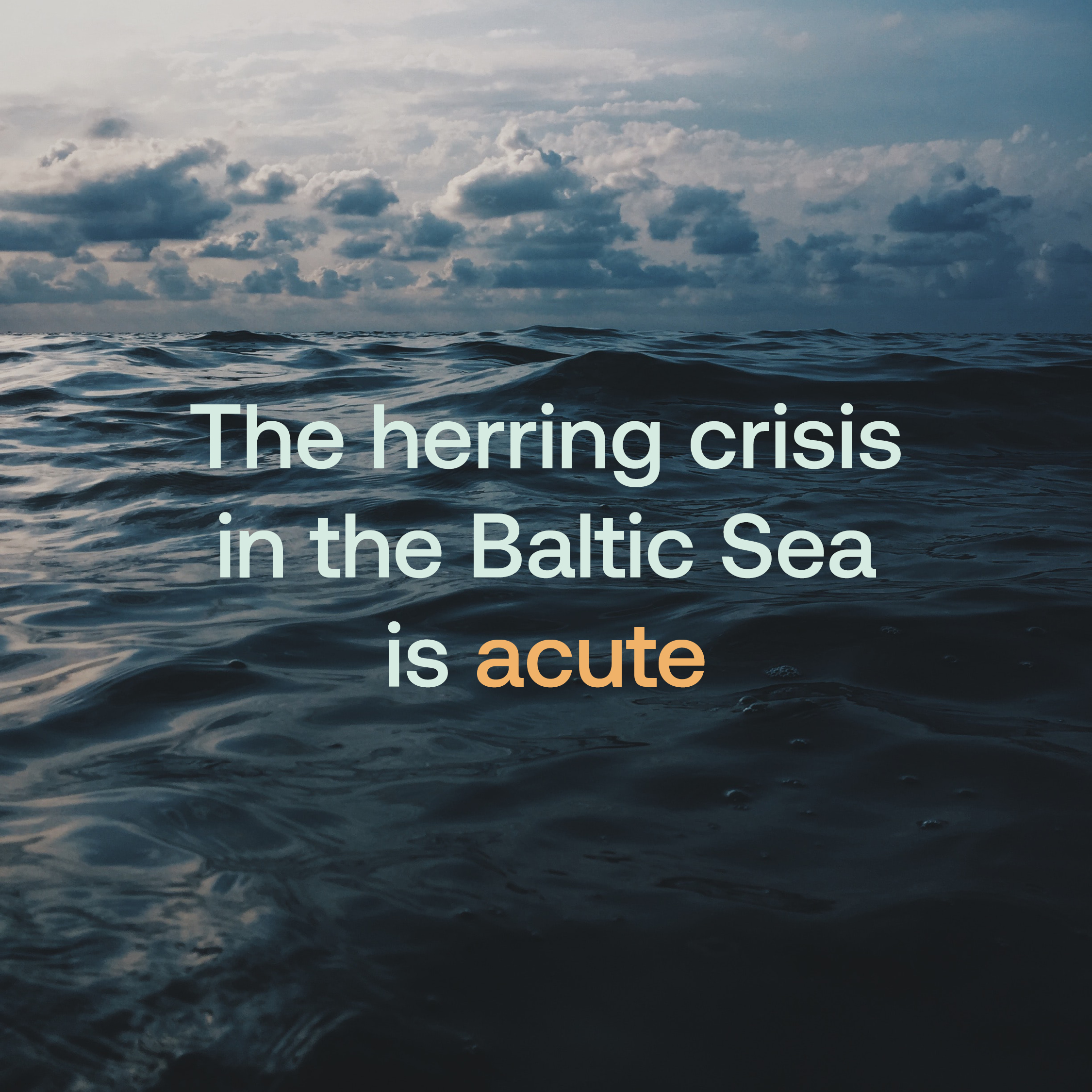In 2021, 457 Swedish vessels reported catches from the Baltic Sea, compared to 348 in 2022. This is a decrease of almost every fourth boat in just one year – and it is the small-scale fishermen who have been affected.
– The herring crisis in the Baltic Sea is acute and we are seeing major environmental effects along the Swedish coast. In recent years, researchers and small-scale fishermen have raised the alarm about the disappearance of fish, but politicians have continued to prioritise high quotas for industrial trawling at the expense of coastal fishing and the environment, says Konrad Stralka, executive director at Balticwaters
In 2022, the 20 largest boats accounted for almost 95 per cent of the Swedish catch from the Baltic Sea. By weight, mainly sprat (60%) and herring (37%) were caught, followed by spike (1.4%), vendace (1%) and salmon (0.1%). In total, 87,500 tonnes of fish were caught in the Baltic Sea by Swedish boats, a slight decrease from 91,100 tonnes in 2021, according to figures requested by BalticWaters from the Swedish Agency for Marine and Water Management.
– It is clear who is affected by the current priorities of the fisheries policy. To protect the environment and coastal fisheries, quotas must be reduced to allow stocks to recover, says Konrad.
Fodder is prioritised over human consumption
Over 90 per cent of the catches in the Baltic Sea are used to feed fish farms, dog- and catfood, and mink-, pig- and chickenfarming. The large trawlers catch herring and sprat for feed, while coastal fisheries generally fish for human consumption. Human consumption requires larger herring, of which there is now a major shortage.
– The high fishing pressure has led to fewer and fewer older and larger individuals in the stocks. Last year, research from SLU Aqua showed that fishing pressure in the Gulf of Bothnia must be reduced by 80 per cent over a very long period of time for herring to regain their average size, but politicians did not act on it even though the size of the individuals must be taken into account according to the Marine Strategy Framework Directive. The result is that the ecosystem is being disrupted and the food fishery is now being eliminated, says Beatrice Rindevall, analyst at BalticWaters.
Reduced fishing pressure is the most important measure to recover larger herring, which should be complemented by, among other things, an extended trawl border and changes in scientific quota advice to the EU.
BalticWaters has summarised new knowledge and proposals for key actions to rebuild fishstocks in the document ‘The Way Forward’.


